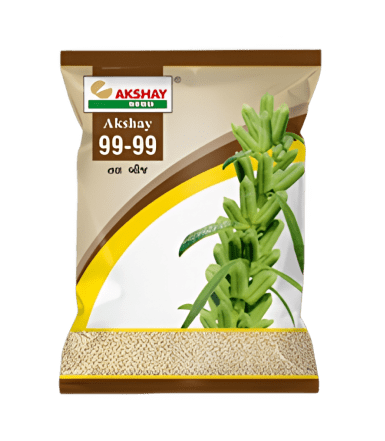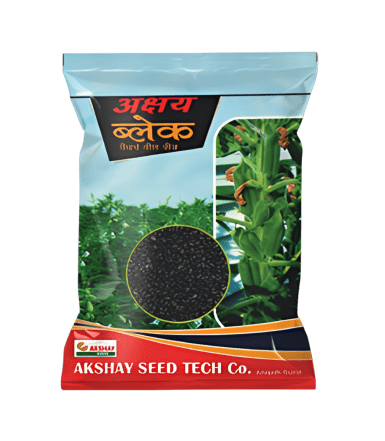OIL Seeds Crops
Farmers grow oilseed crops for the oil in their seeds. People use these oils for cooking, industrial processes, and biodiesel production. The oils from oilseeds provide a good source of polyunsaturated fats, which researchers have linked to heart health.

Sesame seed (Akshay – 1)
About Seeds
Sesame seeds are the edible seeds of the sesame plant, Sesamum indicum, which is a member of the Pedaliaceae family. Sesame seeds are high in protein, fat, minerals, vitamins, and fiber, and contain lignans, which have antioxidant properties. They have a rich, nutty flavor and are commonly used in cuisines around the world.
Product Specifications
TIME OF SOWING
JUNE TO JULY - JANUARY TO FEBRUARY
SEED RATE PER ACRE
2.5 TO 3.0 KG
PLANT HEIGHT
3 TO 4 FEET
DAY TO MATURITY
85 TO 90 DAYS
CAPSULE: ARRANGEMENT
OPPOSITE ON MAIN BRANCH
GRAIN COLOUR
MILKY WHITE COLOUR
SEED: 1000 SEEDS WEIGHT (G)
MEDIUM (3.5 GM)
YIELD PER ACRE (APPROX.)
800 TO 900 KGS
Key Features:
- Pristine Quality: We meticulously source sesame seeds from the best regions globally, ensuring top-notch quality and freshness in every batch.
- Nutrient-Rich: Packed with essential nutrients like calcium, iron, and fiber, our sesame seeds are a wholesome addition to your diet, promoting overall health and well-being.
- Versatile Usage: From garnishing to cooking, our sesame seeds lend themselves to a myriad of culinary applications, enhancing the flavor and texture of various dishes.
- Unmatched Freshness: We prioritize freshness and maintain strict quality control measures from harvesting to packaging, so you receive sesame seeds bursting with flavor and nutritional goodness.
Expore more : Sesame Seeds





